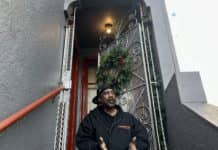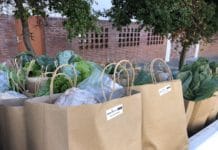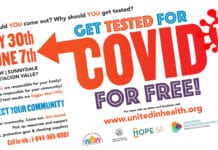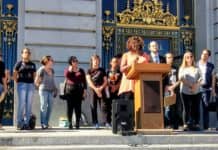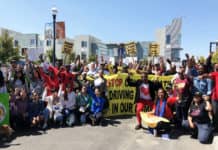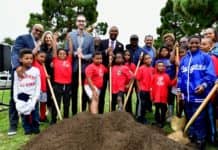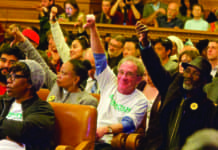
Funding made available to over 300 businesses impacted by COVID-19
San Francisco – Mayor London Breed and the Office of Economic and Workforce Development (OEWD) have made nearly $1 million in new funding available for mini-grants to independently-owned and women-owned small businesses in underserved commercial corridors including the Bayview, Central Market Tenderloin, Excelsior, Japantown, Fillmore, Mission and the Outer Mission Ingleside (OMI) neighborhoods. The Neighborhood Mini-Grants will provide $1,000 to $10,000 in grants for urgent economic relief for neighborhood-serving small businesses and women-owned businesses impacted by COVID-19.
“The Stay Home Order is critical to protecting public health, but we know it’s having a major impact on our workers and small businesses,” said Mayor Breed. “These businesses are suffering and need immediate help, and these grants can provide a measure of relief. But we know there’s much more that needs to be done, which is why we’ve had our first meeting of the Economic Recovery Task Force to plan for how we can better support them now and over the coming weeks and months.”
The Neighborhood Mini-Grants will provide financial support to family-run businesses, owner-operated businesses, entrepreneurs of color, women-owned businesses and other enterprises in historically underserved communities who may not have employees on payroll or have access to traditional capital. These businesses include salons, barbershops, flower shops, gift shops, independent contractors and many others that have been severely impacted by business closures or reduced operations due to COVID-19.
. . . the City and partners, including the San Francisco Public Utilities Commission, are committing nearly $1 million in City funding to provide economic relief to over 300 businesses.
“Family-owned and owner-operated businesses in San Francisco are an essential and beloved part of our neighborhoods and they need our help now,” said Joaquin Torres, director of Economic and Workforce Development. “These businesses provide an important foundation for many of our historically marginalized communities and are a vital means of self-employment, providing access to economic opportunity for women, communities of color and immigrant households. We are humbled to be in a position [to] deliver them some relief.”
OEWD worked closely with community-based organizations in opportunity neighborhoods across the City to reallocate existing City economic development funds to support COVID-19 relief efforts. Together, the City and partners, including the San Francisco Public Utilities Commission, are committing nearly $1 million in City funding to provide economic relief to over 300 businesses. In addition, some neighborhoods will be adding to these funds by leveraging private donations to support additional businesses.
“Our office has been working hard to negate the adverse impacts of this COVID-19 health crisis on our small businesses. Bayview’s small businesses are the heart of our community and are being negatively impacted by this nightmarish pandemic,” said Supervisor Shamann Walton. “This Phoenix Fund in the Bayview is a unique opportunity – specifically for Bayview small businesses – that will help mitigate the negative economic impacts for these community anchors. We will continue to work on strategies that will help our businesses survive this unprecedented hardship.”
OEWD will work closely with community partners who will administer the grant, complete outreach and deliver the financial aid directly to qualifying businesses within these targeted areas. Community partners include the Excelsior Action Group, Mission Economic Development Agency, Economic Development on Third (EDOT), Renaissance Center for Entrepreneurs, Calle 24 Latino Cultural District, Japantown Taskforce and Community Benefits District (CBD), Tenderloin Community Benefits District (CBD), Outer Mission Merchants, and Northeast Federal Credit Union.
“The Excelsior Action Group is grateful the City is reaching out to neighborhood organizations like ours. It speaks to the resiliency and flexibility of our community that we can redirect our current funding structure and provide the much needed and immediate financial support to our local businesses affected by COVID-19,” said Maribel Ramirez with the Excelsior Action Group. “Each neighborhood is distinct, and by leveraging community partners who are uniquely equipped to understand their community needs, we will help to deepen the impact of city funds.”
The Neighborhood Mini-Grants are intended to help recipients with necessary expenses required to sustain their businesses during the acute disruption phase as they temporarily close or reduce their operations until the shelter in place order is lifted. The funds may be used to support business expenses such as rent, payroll and utilities or to supplement their income resulting from a direct loss of business revenue. Small businesses in these neighborhoods may see if they are eligible to apply at https://sf.gov/apply-small-business-mini-grant.
The mini-grants are part of Mayor Breed’s ongoing efforts to support small businesses during the COVID-19 pandemic. These initiatives to support small business include:
- Deferring business registration fees totaling $49 million for 89,000 businesses and further delaying the City’s collection of the unified license fee until Sept. 30, 2020. This will lead to $14 million in deferrals impacting 11,000 payees. In March, Mayor Breed announced an initial three-month delay for the collection of the fee.
- Deferring business tax payments for small businesses with up to $10 million in gross receipts. Mayor Breed and Treasurer Cisneros notified small businesses that their first quarter business taxes can be deferred until February 2021. No interest payments, fees or fines will accrue as a result of the deferral.
- $10 million Workers and Families First Paid Sick Leave Program, providing up to 40 hours of paid sick leave per employee;
- $9 million Emergency Loan Fund providing up to $50,000 in zero interest loans for individual small businesses;
- $2 million Resiliency Grants providing up to $10,000 grants to over 200 small businesses;
- $2.5 million in support for working artists and arts and cultural organizations financially impacted by COVID-19;
- Supporting nonprofits funded by the City so workers don’t lose their incomes;
- Issuing a Moratorium on Commercial Evictions for small and medium sized businesses that can’t afford to pay rent;
- Capping the commission at 15 percent on third party food delivery companies;
- Advocating for additional resources for small business and workers through the federal CARES Act;
- Establishing the City Philanthropic Fund, www.Give2SF.org, where donations will support housing stabilization, food security and financial security for workers and small businesses impacted by coronavirus;
- Launching a one-stop City website for businesses and workers seeking resources, contacts and updates during the COVID-19 emergency: www.oewd.org/covid19.
Earlier this month, Mayor Breed and Board of Supervisors President Norman Yee announced the creation of a COVID-19 Economic Recovery Task Force. The Task Force is charged with guiding the City’s efforts to sustain and recover local businesses and employment, and mitigate the economic hardships that are already affecting the most vulnerable San Franciscans.
Their work will support San Francisco organizations and individuals throughout the remainder of the Stay Home Order, and will lay the groundwork for economic recovery once the City has made meaningful progress containing COVID-19.

 Store
Store



